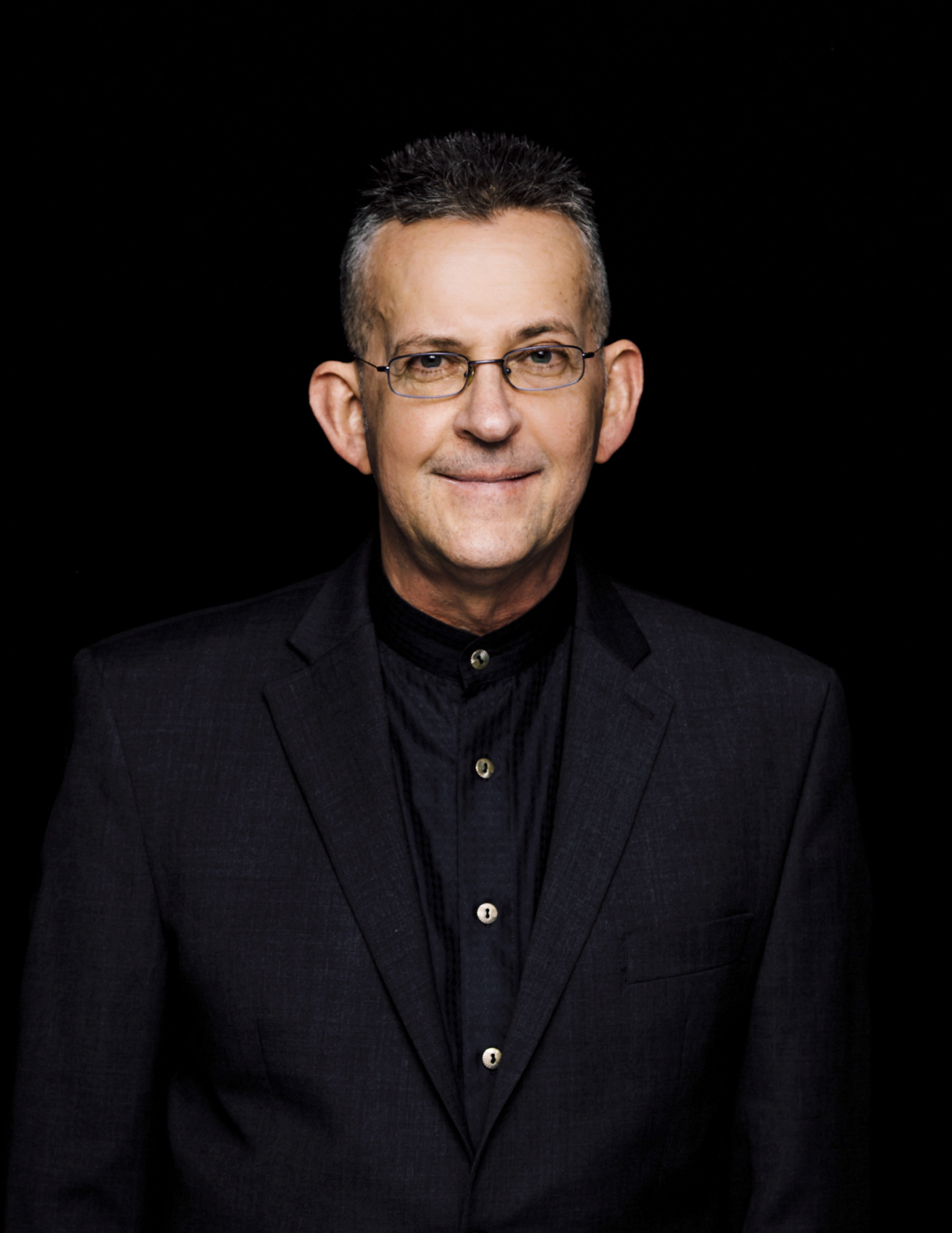Press reviews
Bonner Generalanzeiger
The “Via dolorosa” turned out to be an important testimony to today’s discussion of the use of the organ for the representation of programmatic ideas.
Rhein-Ahr-Rundschau
To depict Christ’s death and human suffering, Ruoff layers clusters and seconds and then lets them die out in a breathtaking cadence.
Nürnberger Zeitung
There are no limits to the joy of experimenting, whereby the boldness is often lacking and (…) there is an honest look backwards, which has the advantage that there is currently no place for charlatans.
The poem „Völker der Erde“ by Nelly Sachs with the line „Like a mask behind the night yawns“ provided the inspiration for Axel Ruoff’s organ toccata. The piece is introduced by a fanfare, chords with sharp accents characterize the whole work and return rhythmically varied, in which it burns and blazes with great excitement and youthful ecstasy.
Nürnberger Zeitung
Axel Ruoff proclaims the humanitarian cause with important chords, with striking repetitions. He uses the form of the toccata, which he fills full with life.
Augsburger Zeitung
Bavarian Radio broadcasted a recording of the Sebalder Night Concert on November 17th. Much was heard that brought pure listening pleasure. The world premiere of Axel Ruoff’s „Like a mask behind the night yawns“ is full of drama, which is achieved through rhythm.
Westdeutsche Zeitung
Axel Ruoff’s string quartet came from the Ensemblia composition competition – an impressive demonstration of craftsmanship …
Hessische Allgemeine
The „Fantasie funebre“ is an idiosyncratic work that not only uses various compositional technique, but is concerned with content. The flute is sensitively linked to the background of the strings, with the flute’s gesture of mourning, melodically tonal, running into this sometimes muffled, then again iridescent, buzzing background with rhythmically manically boring figures. The piece makes you sit up and take notice of the sense of responsibility with which a young musician looks for expression …
Bietigheimer Zeitung
The world premiere of a composition by the young Stuttgart composer Axel Ruoff was the highlight of the orchestral concert of the Stuttgart Philharmonic. “Procession” for large orchestra had to be repeated at the premiere. The Stuttgart Philharmonic and its conductor certainly played a decisive role in the success of this world premiere. Through their virtuosity and sound harmony, they were able to bring this expressive piece of music closer to the audience.
Stuttgarter Zeitung
The Baden-Württemberg Arts Foundation not only supports its scholarship holders financially: it also gives them the opportunity to present a representative selection of their works to the public. The invitation to the composer portrait Axel Ruoff presented an impressive list of prizes, awards and other trophies of the well-known Stuttgart composer.
Stuttgarter Nachrichten
The Stuttgarter’s program was particularly convincing especially with Axel Ruoff’s virtuoso concerto for piano and orchestra, which demanded a maximum of rhythmic precision from the musicians….
Neue Zeitschrift für Musik
Axel Ruoff proves to be a very subtle composer with a filigree sound fantasy. The music demands close attention, it often moves on the edge of shadowy figures, hints of musical conciseness. The further development of the composer promises interesting things.
Vaihinger Kreiszeitung
Concert of the Stuttgart Philharmonic (…) Hans Zanotelli, who had competently rehearsed and directed the piece (Procession), repeatedly directed the applause to the young composer with words and gestures and played it again. The second hearing also confirmed the Solomonic judgment of the jury (…)
Badisches Tageblatt
To write music without a “philosophy”, music that is immediately communicated to the listener, is Axel Ruoff’s concern. He wants to give the listeners the freedom to listen and associate in their own way. His piece “Night and Dreams” for large orchestra immerses the listener on a sound world of deep string tremolos in the events of the night and dreams. The enthusiastic final applause went not only to the composer, but also to the SWF symphony orchestra under Lothar Zagrosek.
Leonberger Kreiszeitung
“Schleif mich durch die Lüfte” (Drag me through the air) is what Axel Ruoff calls his opus for solo percussion. Cornelia Monske played the multi-layered work from the beginning at high speed and with captivating dynamics. At times the composition is articulated in a lyrical, pensive way, then again by an almost seditious obsession. The interpreter and the composer, who was present in the hall, received enthusiastic applause after the performance.
Münsterische Zeitung
… It was hardly surprising that the guitar concert by Axel Ruoff, composed for Evers and presented by him, was a highlight of the concert series. Ruoff creates an atmosphere thanks to numerous effects, such as tremolos in the low strings or hoarse, scratchy violins. Together with the orchestra under the direction of René Gulikers, Evers managed a very dense performance of the hauntingly dark piece.
Heilbronner Stimme
Axel Ruoff’s Toccata “Über sich abspielende Dinge” (Things happen above one) was the highlight of the ensemble pieces: gushing, sometimes jazzy guitar motor skills are commented on and counteracted by powerful actions on xylophone, bongos, gongs and cymbals. Much applause for the composer and the excellent interpreters.
Gmünder Tagespost
From the composer Stuttgart Professor Axel Ruoff, who was present, first sounded “Schalen des Zorns” (Cups of Wrath). Both the work and the interpreter eloquently expressed the theme. The ostinate organ point vividly prepares for all of the facets – the hammering and accents in odd beats – work out the fragile mentality up to the full work: repetitions, succinct rhythms, runs, clusters, pedal acrobatics, finally the tempo accellerando … Finally the main work, a commissioned composition from the Stuttgart Ministry of Culture: Axel Ruoff’s Concerto for Organ and Percussion Ensemble (1996/97) in four movements. Ruoff exploits the abiguity even more intensely; „alla marcia“ in particular seems to me to satirize a war march, relentlessly inviting personal opinions. Psychologically logical then the Nocturne with the finest nuances at the beginning (gong, bell overtones, pedal and manual polyphony of the organ) builds to a tremendous climax (associating broken glass), after which the whole thing dies down when the organ motor is switched off. The final movement, alternating 3×2 / 2×3, offers an aggressive finale, savoring the whole range of sounds from all instruments. Enthusiastic applause thanked for this unique concert in the word’s multiple meanings.
Kölner Stadtanzeiger
Axel Ruoff’s “Schleift mich durch die Lüfte…” (Drag me through the air …) already implies in the title a suggestive sound journey – masterfully and imaginatively interpreted by Monske, whatever the “images” the composer may have had in mind…
Hildesheimer Zeitung
Cornelia Monske demonstrates the enormous arsenal of instruments a percussionist has to master in the piece “Schleift mich durch die Lüfte…” by Axel Ruoff, which is based on the poem “Ariel” by Silvia Plath.
Westfälische Nachrichten Münster
Highlight: The world premiere of last year’s guitar concert by Axel Ruoff, which Reinbert Evers, Dean of the Musikhochschule, personally took over ..
Stuttgarter Nachrichten
The Stuttgart-born and university professor Axel Ruoff has created an atmospheric poem with his “Notturno”. He knows how to come up with a broad spectrum of expression, from pure speech, litany-like (pianissimo) murmuring to exciting vibrations, without forcing it.
Hessische Allgemeine
The voice acrobat got completely into her element when it was said, “Someone in passing” by A.R. to portray theatrically. Christel Nies demonstrated the needs of a singer with herself so skillfully between nature and mania that the audience simply had to be entranced …
Stuttgarter Nachrichten
Axel Ruoff’s „End of the World“, premiered here, is an expression (…) of this intellectual and historical situation: The orchestra is dominated by the percussion instruments positioned to the left and right of the choir. The work begins with timpani strokes that seem to tear the air apart, the pace is set: the sound of the choir is almost undermined by the percussion part, and the human voice is almost silenced by crude mechanical percussion strokes.
Hohenloher Zeitung
A text by Nelly Sachs „Like a mask behind the night yawns“ meaningful and visionary, forms the basis for Ruoff’s opus. Violent screams from different peoples, presented on different tonal levels, alternate with small clear motifs, which were soon overlaid by screaming, which finally swallow up all of the motifs, so that the piece ends loudly and depressingly.
Balinger Zeitung
The first two organ works by Axel Ruoff were specially selected for the commemoration day of the monstrous crimes against humanity, connected with the name Auschwitz (…) With concentrated clusters and ingeniously fanned out „sharp sounds“ the orchestral works of composer Ruoff portray the terrible cruelty of what people from Auschwitz to Sarajevo can do to one another!
Stuttgarter Zeitung / Stuttgarter Nachrichten
A Monkey tamed in vain (…) „A stranger in the city“ by Axel Ruoff based on tale by Wilhelm Hauff (…) Again and again the plot leaves the real level, increases, driven by the music, into the ecstatic (…) Its character is predominantly parodic ( …) The unfamiliar actions of the satirized citizens accumulate in excesses. The director’s ideas are unlimited. A magnificent buffo opera (…)
Comedic fire in green fields! (…) Has the bourgeois changed (…) No? That would be tragic if it weren’t for the theater (…) At least the people of the past have a cheerful side here. Also in the staging of the play by Ernst Poettgen under the title “A Stranger in the City” (…) The bourgeois society is whipped about for its narrow-mindedness according to all the rules of the art (…) Seldom have clichés been attacked so cheerfully by cliché: opera quotations and parody , Rap, chanting, overly kitschy community choir, soundscapes of avant-garde style, oriental pop, Don-Cossack blend (…) The orchestra (…) accompanied the events on the stage with the utmost precision and a desire for rapid sound changes. Just Bravi.
Mannheimer Morgen
… Axel Ruoff’s „Sermon on the Mount“ in the Christ Church … In the interlude before the core movement the inferno breaks out, over 40 different percussion instruments dictate the score … The setting, for example, characterizes shockingly states in which faith has been lost. Ruoff’s oratorio painfully digs into the memory of the crimes against asylum seekers in the present when the perpetrators have their say: … The performers took up the provocations with stirring passion … The prayer “Veni creator spiritus” (…) became a really tough call for action.
Stuttgarter Zeitung
The focus of the concert was the world premiere of a new organ work. „Shirufa“ belongs to Ruoff’s series of Toccatas for organ, which was last continued with „Schalen des Zorns“ in 1995. The new work is musical portray of the biblical figure Seraphim, in Hebrew Shirufa, which Ruoff achieves by taking the literal and ambivalent meaning of the term – the glowing, at the same time the poisonous snake – as a design principle. From the beginning, the toccata seethes with the positive meaning of the seraphim surrounding the throne of God soon overlaid by a completely different, ominous glow. The work ends without having made a decision between these two poles.
Stuttgarter Nachrichten
(…) But the oratorio „Sermon on the Mount“ puts the words of the Gospel of Matthew in context with poems and texts that revolve around the low point of this culture: the annihilation of European Jews (…) Despite numerous spoken texts, Ruoff’s oratorio is not primarily shaped by these. The work owes its effect primarily to the music (…) No words could capture it so vividly: It was Christians who did the inhuman: it was western culture to which the perpetrators felt obliged. Axel Ruoff confronts the Sermon on the Mount with the failure of Christianity. The Sermon on the Mount – Utopia: not the broken ethical requirements on man, but his hope for heaven, which is to come. Thus this hope threatens to get stuck in ones throat.
Stuttgarter Zeitung
With unshakable belief in the power of the piano, Axel Ruoff’s presented the premiere of his “Credo”. This setting of the subjective understanding of the faith of the Stuttgart professor at the Music University takes ninety minutes and is very detailed (…) The individual elements are based on a deep preoccupation with Christian principles and, like the musicians, are interwoven with number symbolism – the mathematical order as a sign of a divine world order (…) columns of sound that vibrate softly, only change slightly, and then return to the starting point. The frequent lack of a pulse forces the listener to remain disoriented in the sounds and quite simply to trust that one is not left alone … Due to the almost constant stay in the piano area – more than once a quadruple piano is even required – the ears become so sensitized that frequently occurring onomatopoeic instrumental phrases such as string glissandi or the striking of a bell sound almost exaggerated (…)
Stuttgarter Nachrichten
Axel Ruoff’s oratorio „Credo“, premiered in the Leonhardskirche (…)
Sometimes it takes place almost statically on the background of 15 pictures based on Bible texts. In sharp contrast to the hustle and bustle of the evening traffic, the noise of which is always present during all the quiet parts, the Biblical pictures unfold almost meditatively (…)
L’Unione Sarda (Italy)
The sensation of the evening: the first string quartet by the young German Axel Ruoff (…) A work full of drama and inner conflict …
La Nuova Sardegna
Endless applause for the Italian premiere of the string quartet by Axel Ruoff.







